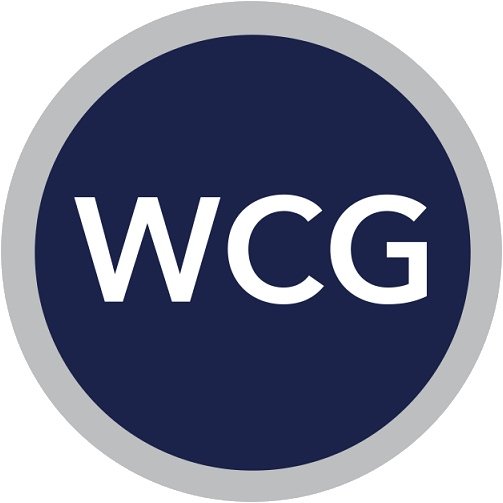Leveraging Each Career Stage To Reach Your Professional Goals
When you are growing up, there are certain milestones that stick out in your memories. Think about the first time you (or your kids) rode a bike or drove to a friend’s house alone, registered to vote, went off to school, or moved into your first place. These are all part of different life stages, and each decision we make influences the next one.
There are also different stages throughout our career journey. Learning how to navigate them is important, as your goals likely change from stage to stage. Do you know what stage of your career you are in? Are you aligned with your values and priorities?
If the answer to either of these questions is “no” or “I’m not sure,” that’s where The Wilbanks Consulting Group and our coaching team can help. We offer strategic career coaching that can be tailored to each stage of your career and your personal and professional goals.
What are career stages?
FlexJobs defines the following 5 career stages that most people experience throughout their professional life:
Exploration
Establishment
Mid-Career
Late Career
Retirement.
During each of these stages of our career, we have different objectives for what we are trying to achieve.
Exploration Career Stage
Before we even get to our first “real” job, we are researching and learning more about different opportunities. This might be through internships or volunteer work. In college or graduate school, career centers may offer connections with companies for internships at career fairs. For me, this was an HR internship with Pepsi Bottling Group. It was the first time I really learned what “being in HR” meant for a corporation. I accepted the opportunity to go back and work for Pepsi full-time after that summer.
The exploration career stage is about discovering your interests and learning basic skills. Participating in our Career Exploration Coaching program outlines this process methodically, helping to explore how aligning your career goals with your strengths can lead to greater enjoyment and success. Additionally, spending time in research and networking will help provide greater clarity and differentiate between different opportunities. Focusing on building your network is key during this stage as these individuals will likely be resources for you throughout your career. Find a mentor that you can talk with transparently about building new skills and any challenges you face during this learning stage.
Establishment Career Stage
Establishment happens once you jump into your first full-time role. You may either have opportunities for new roles within the same company or move companies a few times to continue building your skills. When I was in this stage of my career, Pepsi was a great place to learn HR from my peers on a regional team, as well as the different responsibilities I had as an HR generalist, covering multiple areas of HR. In some roles, this could mean learning many parts of your field throughout the year or focus on being a specialist in one area for a while before moving to a different department.
This is the career stage when you continue honing your craft and learning about your function or industry. You might think about getting a certification or license in your field during this time. Some certifications also require continuing education credits, which is a great way to stay current with your career and the changing requirements. This is also a good time to revisit your goals. What are your goals? How is your employer able to support goals through learning and development opportunities? If you aren’t sure, participating in strategic career coaching is a good place to start.
Aligning your goals with your values and understanding the parts of your job you enjoy doing can help create an action plan of what to focus on and hold you accountable to moving the needle forward. During this stage, you may also get feedback about needing to develop additional skills or strengthen a skillset to move to the next opportunity. This is when practice makes a big difference – learning a new instrument or playing a new sport takes time. Remind yourself to be patient as you are learning!
Mid-Career Career Stage
During mid career, Indeed identifies this as a time of either career stability and progression or transition into a new profession or field. Different priorities may come into play at this stage, whether it’s planning for retirement or looking for work-life balance. For me, this was a stage when I decided to step away from an HR career that I enjoyed and found my passion for working in career coaching. It’s never too late to try something new! You will, at times, hear people in this stage talk about “what they want to be when they grow up,” because they no longer feel the same way about their chosen career path. If you feel that way, you aren’t alone…it’s rather common.
The mid-career career stage is a great time to think about leadership opportunities and gain skills that will position you towards more strategic roles. Or maybe you want to think about doing something completely different. Our strategic career coaching programs can be tailored to your specific needs and durations determined by your personal objectives. It’s important to look at your priorities and see if you are satisfied with what support you are receiving from your company based on what’s important to you. It might be time to start looking for a new opportunity if you aren’t in alignment.
Late Career Career Stage
Late Career is a time for reflection, planning, and leaving your legacy, as FlexJobs refers to it. This is an opportunity to maintain the status quo, but also to leave your place of employment better than you left it. Your motivation might shift at this stage, such as prioritizing better work/life balance or a role with more flexibility. It’s important to recognize if that’s the case, it’s okay to change your goals.
If you are in a leadership role, have you identified a successor yet? Consider framing the work you are doing in relation to the goals you are working towards at this point. While I may only be entering this stage of my career, I have seen from others the importance of sharing knowledge with mentees and planning financially for my family’s future.
As a time to reflect and think about the future, this stage could include discussions about transition to retirement jobs, or even finding a new hobby. Some individuals may find enjoyment in volunteering for causes that interest them personally. You could also consider mentoring younger employees in the workplace to help them reach the same career success you have achieved, either within your organization or with an external community partner. Additionally, schedule time with a financial advisor to plan for what the next stage will look like for you.
Retirement Career Stage
Retirement…you’ve made it! Depending on your financial planning, personal interests, and health, this could be a time for new hobbies and traveling. It could also be time for prioritizing family and your health. Some individuals may decide to continue consulting work, work part-time, or find another full-time job. The opportunities are endless. My dad, for example, volunteers helping seniors through his church, is a docent at a museum, and participates in continuing education classes through a local university.
Retirement is a time to stay engaged and keep your brain and body active, whether that’s volunteering, taking continuing education classes, working, or traveling. There are many opportunities to get involved in our communities, so it’s just a matter of finding something that works based on your interests, hobbies, and time available.
Ensure Success At Each Career Stage With A Career Coach
How you want to make a lasting impact is up to you. Intentionally planning and setting goals throughout your career can not only ensure you achieve success, but also set you up to be more prepared for retirement so that you can enjoy it.
For support mapping out your career plan, or getting unstuck from one stage to the next, reach out to WCG – we can help. Connect with us by setting up a free 30 minute consultation to learn from one of our career coaches about how we can help you on your journey. After all, you can grow a robust career “garden”, but you have to plant the first seed.




